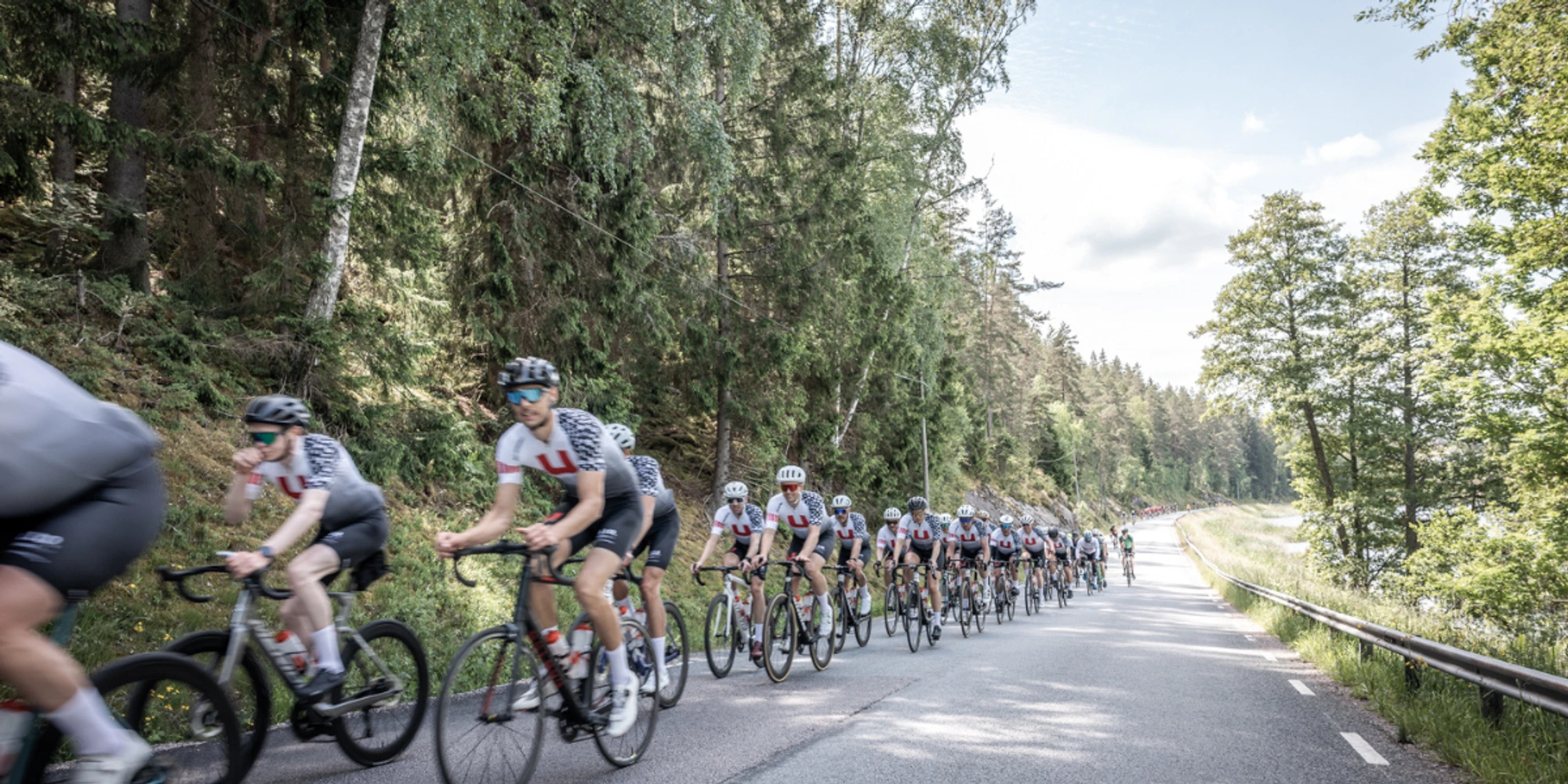
Create a successful energy plan
A well-planned energy plan can often make the difference between setting a new personal best, securing a podium place, or hitting the wall completely. In previous articles, we've discussed why carbohydrates are the most important energy source for performance during training and competition. We also emphasized that an adapted stomach performs better in competition if accustomed to carbohydrates during activity.
But how do you create your personal awesome energy plan?
Creating an energy plan
Planning intake can feel complicated, especially when it involves fluid amounts, grams of carbohydrates, and intensity zones. However, it's not as difficult as you might think.
We’re here to provide you with straightforward tips for all your races regardless of distance, goals, and sport. With some basics and a few simple tips, anyone can set up a pro-level plan. A well-planned energy plan increases the likelihood that you’ll stick to it; simply relying on hunger, perceived energy, and thirst raises the risk of both hitting the wall and stomach issues—and you've invested too many training hours to let energy intake ruin race day.
The energy requirement to maintain performance rises with intensity and activity duration. To the right, you'll see a simple guide outlining the need for grams of carbohydrates under different intensities and time spans.
To create an energy plan easily, ask yourself 5 questions, and you'll be able to select exactly what you need to perform at your best in the next competition.
Five questions you should ask yourself for an AWESOME energy plan
1. What is the goal of the training/competition?
Is your goal to win or to complete? The goal can partly dictate the importance you place on your plan. If optimal performance is the goal, always strive to optimize your energy plan. If you view the competition as an adventure or a more relaxed experience, you can afford to "slack" a bit more. For example, you might eat more solid food, but this can increase the risk of stomach issues, and an upset stomach rarely leads to an enjoyable competition experience. However, it's better to learn your limits during a competition or training where the goal is not optimal performance compared to an A-race.
Regardless of the goal, our recommendation almost always aligns with research, which is to aim for 90g of carbohydrates per hour when you’re active for more than 90 minutes. To push further, aim to go as high as you can until your stomach starts protesting. For some, that limit is 70-80g, while others can reach up to 100-130g/h. For simplicity, our recommendations are based on 90g/h, which most people with a bit of training can achieve.
2. How long will you be active?
Now you know what you need to take in per hour. It’s time to calculate the total intake. Say you’re running a marathon in 4 hours, 4x90 = 360g. Therefore, your total energy intake for the race will be 360g of carbohydrates. These calculations offer a good overview of energy needs during the race and work for durations from 90 minutes to 24-hour ultramarathons. For even longer races or challenges, a high carbohydrate intake remains crucial, and minimizing the calorie deficit also becomes important.
3. Where should the energy come from?
The source of your carbohydrates depends on several factors like taste, liquid or solid energy, what you’ve previously tested, and what you're comfortable with. Rule number one: don’t try anything new on race day. If you have time to prepare, test the energy during training. Another good rule is to ensure the majority of your energy intake comes from gels or sports drinks. They are easy for the body to absorb, simple to carry, and provide a clear overview of your intake. Bars and more solid food take longer to break down and increase stomach issues risk. During longer races, bars can provide a flavor break or address hunger. However, we don't "need" solid or "regular" food just because we’re active for over 12 hours. Want to learn more about gel, bars, and sports drinks?
Also, consider the types of packaging that suit your activity. Can you open a bar on the go? A screw cap or pull tab on the gel? Or is it better to pour into a soft bottle before starting? An energy plan is effective only if you consume the intended energy even on rough trails, technical descents, or when in a packed group.
4. What are the competition & weather conditions?
Is it a running race, bike race, triathlon, or ski competition? Are there energy stations, or do you need to bring all the energy yourself? Is it hot or cold? Higher temperatures require more fluid intake. These questions affect your energy setup and the products you should use.
To simplify your plan, separate energy intake from fluid intake. If you have 2 bottles on your bike or 2 soft bottles in your running vest, you can mix one with a sports drink. U Sport is designed for both strong and light mixing. Suppose you’re running for 3 hours calmly, with 60g of carbohydrates per hour, 180g in total, then mix 9 scoops (1 scoop gives 30g of carbohydrates) for all the energy in one bottle. In the other bottle, have water and drink based on thirst.
Will you rely solely on energy stations along the course? Then check what's served and how much you need to consume at each station to stick to your plan. In competitions where Umara's sports drink is served at the stations, a cup with 1.5dl of sports drink contains about 10g of carbohydrates. It's helpful to calculate and maybe supplement with extra gels before the next marathon.
5. When should I start consuming energy and how often?
"Little and often" is a great mantra here. Start intake after about 20 minutes and try to keep it around 2-3 times per hour throughout the race. This way, you reduce the risk of "traffic jams" in the intestine, optimizing carbohydrate absorption.
But what about loading and supplements before and just before the start?
To truly optimize your performance, there's much to gain from consuming supplements like caffeine, beta-alanine, and nitrate before the start.
Learn more about optimal supplements for endurance athletes

An effective energy plan requires thoughtful preparation and a clear understanding of your personal limits. With an Awesome energy strategy in place, you can enhance your performance and reduce the risks associated with low energy and dehydration. Remember, every athlete is unique, so what works for one might not work for another. Experiment during training, learn from your experiences, and adjust where necessary. Below are three examples of different energy and hydration plans for a 4-hour competition on a moderately warm 22-degree summer day, targeting an intake of 90g of carbohydrates per hour.
Johanna's sports drink plan
Johanna depends entirely on sports drinks. She runs with a hydration backpack and mixes a 1.5-liter bladder with 12 scoops of U Sport, providing 360g of carbohydrates. She consumes this consistently throughout the race. If it becomes very warm, she carries water in an additional soft bottle.
This plan provides 90g/h over 4 hours.
Simon's mixed energy plan
Simon prefers to have something to chew on during longer races but wants to avoid any stomach issues. Therefore, he opts for a mixed approach using sports drinks, bars, and gels.
Energy plan:
2 soft bottles, each 500ml, mixed with 6 scoops of U Sport (3 scoops per bottle, totaling 180g of carbohydrates).
2 U Bars = 60g carbohydrates
4 U Gel = 120g carbohydrates
Total intake = 360g
Usage:
Consistently drinks the sports drink during the race.
2 U Bars at 1.5 hours and 3 hours.
Uses U Gel every 30 minutes.
This plan provides 90g/h over 4 hours.
Elov's light plan
Elov prefers not to carry too much liquid weight. He chooses an energy plan consisting solely of gels. By pouring U Gel Bigpack (300ml) into a 500ml soft bottle and mixing the flavors of U Gel, he enjoys a pleasant variety and a lightweight pack. If it becomes very warm, he carries water in an additional soft bottle.
Energy plan:
1 soft bottle of 500ml with 6 U Gel (180g carbohydrates/300ml) + fills up with water until the bottle is full.
6 U Gel = 180g carbohydrates
Total intake = 360g
Usage:
Drinks continuously from his soft bottle, which should be empty after 2 hours.
Uses one U Gel approximately every 30 minutes.
This plan provides 90g/h over 4 hours.
